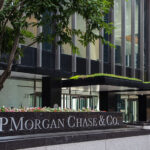FMCG
Fast-moving consumer goods (FMCG) or consumer packaged goods (CPG) are products that are sold quickly and at relatively low cost. Examples include non-durable goods such as soft drinks, toiletries, over-the-counter drugs, toys, processed foods and many other consumables. In contrast, durable goods or major appliances such as kitchen appliances are generally replaced over a period of several years. The term was coined by Neil H. Borden in ‘The Concept of the Marketing Mix’ in 1965.(1996 ,Prentice-Hall, Inc.) FMCG have a short shelf life, either as a result of high consumer demand or because the product deteriorates rapidly. Some FMCGs—such as meat, fruits and vegetables, dairy products, and baked goods—are highly perishable. Other goods such as alcohol, toiletries, pre-packaged foods, soft drinks, and cleaning products have high turnover rates. Though the profit margin made on FMCG products is relatively small (more so for retailers than the producers/suppliers), they are generally sold in large quantities; thus, the cumulative profit on such products can be substantial. FMCG is probably the most classic case of low margin and high volume business.













